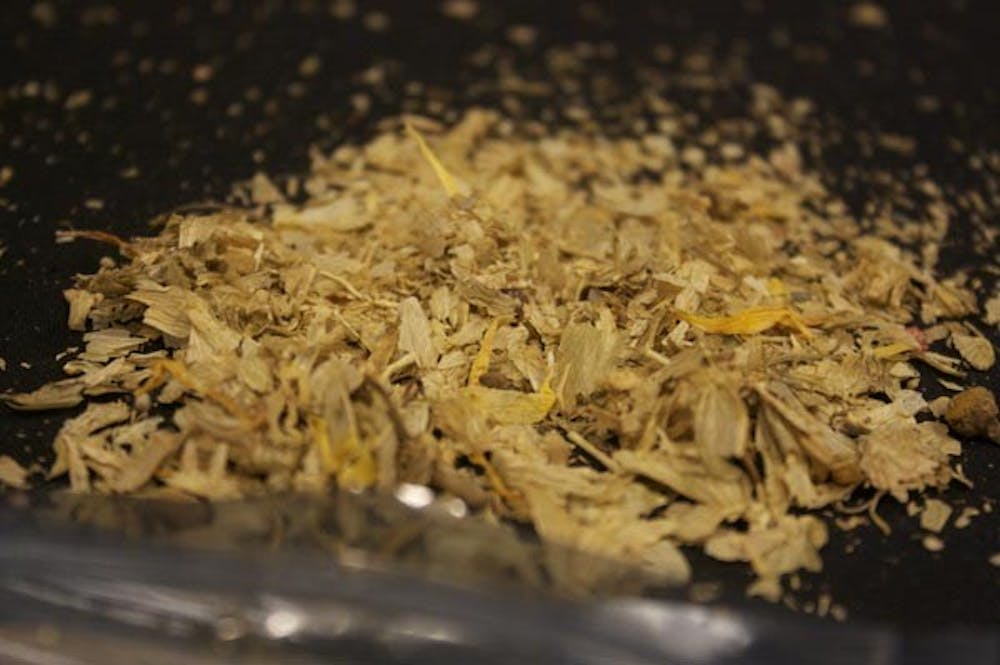The enjoyment of getting a legal high will soon go up in smoke next month as local smoke shops begin to clear a popular item off their shelves.
Spice, the popular drug that is often referred to as “fake pot,” and the five chemicals that are used to make it, are being temporarily banned while the U.S. Drug Enforcement Administration and the Department of Health and Human Services further study the effects of these chemicals.
The DEA sent out a notice Wednesday to alert the public and storeowners of the ban. Stores have until Dec. 24 to clear their shelves, and anyone found in possession of Spice after the deadline will face punishment similar to that of those found in possession of cocaine.
Spice users are able to get a marijuana-like high from smoking the substance. The drug is made by spraying a mixture of herbs with various chemicals that mimic tetrahydrocannabinol, or THC, the active ingredient in marijuana. It’s often sold under the guise of incense, and the packaging warns buyers that it is not for human consumption.
Joey Dee, the owner of Sky High Smoke Shop on Mill and Southern avenues, said the DEA will be sending out a special task force to ensure that his store gets rid of its stock. He said he thinks the ban is futile because people will continue to find new ways to get high.
“The ban is a joke,” he said. “It took [the DEA] three years to ban these chemicals and there’s already a new chemical coming out to replace them.”
Dee said he doesn’t think the ban will have much of an impact on his shop sales because Spice hasn’t been on the market long enough to affect sales.
“We were doing fine here before we had the Spice; we’ll be doing fine after,” he said.
However, Dee has noticed an increase in sales of Spice since the DEA announced the ban.
“People that usually come in and buy one package are buying multiple,” he said.
The DEA decided to pass the ban because, since 2009, it has seen an increasing number of reports from hospitals, poison centers and law enforcement regarding the product, according to a press release.
Side effects associated with Spice include anxiety, headaches, seizures and death.
Elizabeth Inserra, a psychology and exercise wellness senior and manager of Hippie Gypsy on Mill Avenue, said the store doesn’t sell Spice because of the possible dangers associated with the drug.
“People come in here looking for it and we try to warn them of the harmful side effects and try to offer them a better alternative,” Inserra said.
Reach the reporter at Danielle.legler@asu.edu





